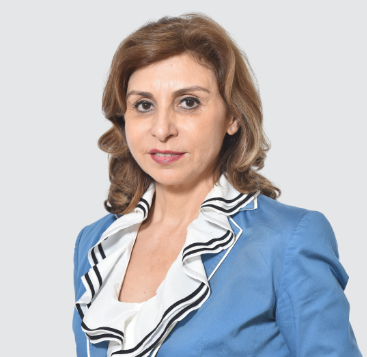Principles for growing the future leaders
It often happens, especially in informal conversations, that various representatives of companies say that they do not have leaders to promote from within their organizations. The most commonly cited reason is that there are no high-performing employees dutifully prepared to take on such a mission. However, when people with leadership skills are identified, it turns out that they do not want to be leaders. The less organized the process of succession to leadership, the more pressing the companies invoke it.
The difference between performance and potential
It seems that the main problem of companies is that they do not adequately train the employees with high potential for solving the challenges of today’s business environment. To make sure they have the successors they need at senior management levels, companies need to identify high-potential employees as early as possible, starting with juniors.
An additional but important issue is understanding the difference between performance and potential. Performance is a measure of how an employee carry out the assigned work, starting from a clear description of the role and responsibilities and based on indicators to be achieved.
Often, however, managers confuse performance and potential. They assume that a successful employee automatically has growth potential and the future ability to excel as a leader. Although sometimes true, performers are often experts at their current level in the company. They do not automatically have the motivation, character and/or ability to lead. However, many organizations invest in their top experts only to find that both the newly appointed leader and the people on the team he leads are dissatisfied with the new situation.
The characteristics of a future leader
Many organizations and their leaders do not know how to determine the optimal time when someone is ready to take a leadership role. A good question in this regard is whether the employee concerned is “prepared to be supported” to evolve hierarchically?
Beyond character, values and modesty, a future leader must first be dedicated to continuous development. He needs listening skills, combined with patience, openness, curiosity and a growth mindset. Professional competence and the ability to achieve sustainable and scalable results are just two starting points to which must be added the above characteristics.
Some organizations will confuse experience with potential. Unfortunately, this mistake leads to investments in those employees who are probably “sufficiently prepared” in terms of experience and leaves out the “unpolished diamonds”, who could be future high-fliers. Understanding these differences is essential in developing leadership talent. Without the selection of the right people for the nursery of leaders, companies have almost no chance of having the necessary leaders for the future.
The training of future leaders
Once they have identified and started to develop high-potential employees, companies need to be careful not to exhaust them. These are the employees that companies want to keep and they cannot abuse their energy and patience resources by assigning them the toughest projects to demonstrate what they can do again and again.
It is very likely that, as a result of such an approach, these employees health and lifestyle will be affected and they will leave just before being promoted. Valuable employees tend to get high performance, are conscientious and it is easy for managers to ask them to take over more projects. Sometimes, for fear of losing the opportunity to get promoted, these employees may not say anything about their personal challenges.
In conclusion
Many times, companies may have employees with high leadership potention in their teams but not be able to see them, nor to cultivate these employees in the roles for which they show a special leadership talent, to over-use them, and sometimes even to postpone their promotion until, in the end, these employees just give up.
The future of companies depends on a multitude of factors, but one key factor is leadership. That’s why it is important to have a group of future leaders and clear succession plans. To get there, the organization needs to know the potential to lead of the employees. Then, after identifying the most talented ones, to invest in their development.

Florentina Șușnea este Managing Partner în cadrul companiei PKF Finconta. Experiența ei profesională de peste 26 de ani cuprinde domeniile de audit statutar și IFRS, consultanță fiscală, probleme de rezidență fiscală, restructurare financiară și fiscală, documentație și politici de Transfer Pricing, fuziuni și divizări, M&A, expertize judiciare, contabile și fiscale, due diligence de achiziții. Florentina este membru acreditat al următoarelor organizații profesionale: Camera Consultantilor Fiscali, Camera Auditorilor Financiari din România, Camera Expertilor și Contabililor Autorizați din România si Association of Certified Anti-Money Laundering Specialists. A absolvit Facultatea Finanțe-Contabilitate din cadrul Academiei de Studii Economice, București, Facultatea de Drept din cadrul Universității ”Titu Maiorescu”, programul MBA de la Tiffin University din SUA, este doctor în economie și a urmat numeroase cursuri naționale și internaționale în domeniul fiscal. florentina.susnea@pkffinconta.ro













